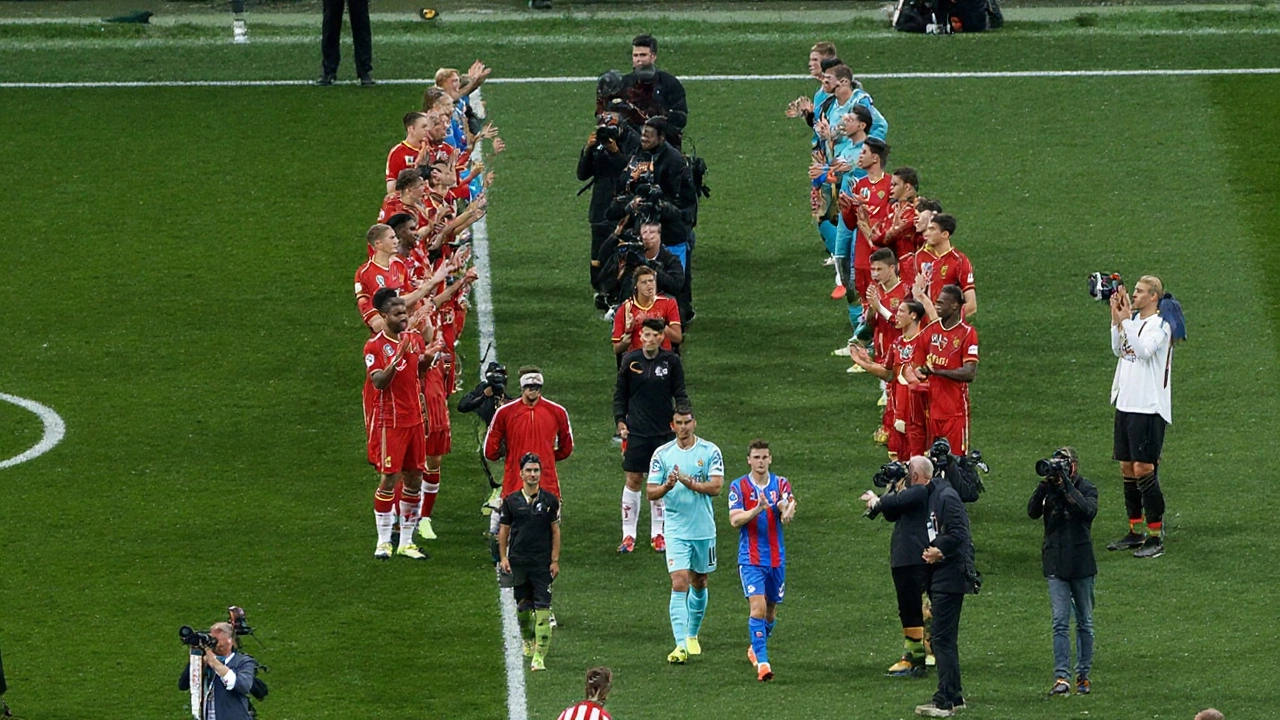A Night of Mutual Celebration at Anfield
When the final league fixtures rolled around, nobody expected Anfield to become a stage for anything more dramatic than a few late‑game points. Instead, the stadium lit up with a ceremony you’d normally only see at a trophy parade. First, Crystal Palace players formed a traditional guard of honor as Liverpool’s champions walked out of the tunnel, a nod to the Reds clinching their 20th Premier League crown and tying the all‑time record.
What followed broke the script entirely. After Liverpool lifted their own banner, the home side lined up on either side of the tunnel again – this time to salute the Eagles for winning the FA Cup, their first major trophy in 120 years. It was a sight you’d expect only in a fairy‑tale, yet there it was, two rival clubs honoring each other in the same match.
Fans on both sides were taken aback in the best way possible. Social media lit up with clips of the double guard of honor, and stadium chants shifted from rivalry to pure admiration. For Palace supporters, seeing their heroes receive that level of respect on Liverpool’s hallowed ground was a validation of a historic season. For Liverpool fans, it reinforced the notion that greatness isn’t just about trophies, but also about how you treat fellow competitors.
Why the Double Honor Matters
Guard of honor ceremonies have been part of English football culture for decades, usually reserved for a retiring player, a manager’s final game, or a single club’s achievement. The dual tribute, however, signaled a new benchmark for sportsmanship. It reminded everyone that a club’s success is amplified when celebrated by peers, not just rivals.
Both clubs entered the season with different narratives. Liverpool chased the elusive 20th league title, a goal that seemed within reach for only a handful of clubs. Crystal Palace, meanwhile, dreamed of breaking a century‑long silverware drought. When both objectives were finally met – Liverpool on April 27 and Palace on May 17 – the natural reaction could have been individual celebrations. Instead, the two clubs chose to share the limelight, turning a simple league finale into a historic moment.The impact goes beyond the evening’s emotions. Young players watching the ceremony will remember that respect can coexist with competition. Officials may see this as a template for future matches where multiple milestones occur close together, encouraging more collaborative celebrations.
Even pundits who usually dissect every tactical nuance were quick to praise the gesture. In post‑match interviews, Liverpool’s manager highlighted the “spirit of the game” that the ceremony embodied, while Palace’s captain spoke about the “pride of representing a club that finally lifted a major trophy after more than a century.” Both remarks echoed a shared sentiment: football thrives when clubs uplift each other.
The double guard of honor will likely be replayed for years to come, not just as a highlight reel but as a reminder that football’s greatest stories are written off the pitch as much as on it. As the season wraps up, the image of two squads standing side by side, arms outstretched, will remain a vivid emblem of what the sport can achieve when respect takes center stage.

Dinesh Gupta
September 29, 2025 AT 16:01Shalini Ambastha
October 1, 2025 AT 12:18two teams pushing each other to be better
no need for bitterness when both achieve something great
the respect speaks louder than any trophy
Amanda Kelly
October 2, 2025 AT 20:00Jessica Herborn
October 3, 2025 AT 00:37its like a metaphysical symphony of human achievement
two souls in kit meeting at the peak of their journey
the universe nodded and said yes this is right
Lakshmi Narasimham
October 3, 2025 AT 06:44Madhuri Singh
October 4, 2025 AT 03:19Amanda Dempsey
October 5, 2025 AT 03:31Ruth Ellis
October 6, 2025 AT 13:34Peter Novák
October 7, 2025 AT 16:13